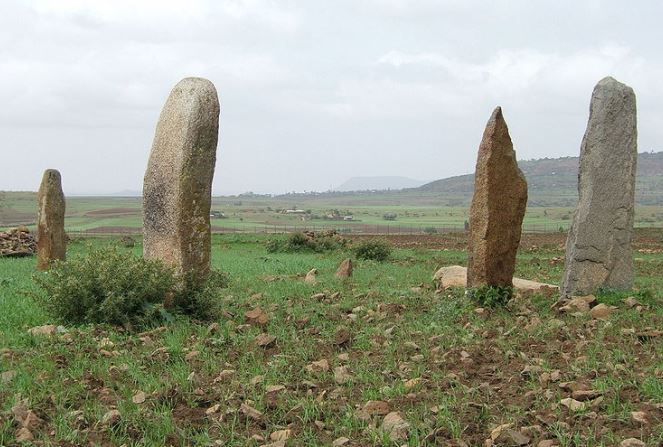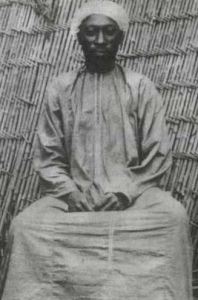 Yehudit (c. 960 CE) was born in the Jewish-Ethiopian Kingdom of Beta Israel (also known as the Kingdom of Semien), the daughter of King Gideon IV, who traced his lineage back to King Solomon. According to tradition, the Ethiopian Beta Israel Jews are descendants of the Biblical Israelite tribe of Dan – a claim supported by historical texts from the 9th and 10th century that refer to an independent Jewish Danite kingdom in Africa. In the 900s CE, the Christian Ethiopian Kingdom of Axum began an aggressive expansion, and sought to forcibly convert all Jews and pagans. King Gideon was killed in battle, leaving the monarchy to his daughter Yehudit, or Gudit. Gudit formed an alliance with a neighbouring kingdom, and soon raised a massive confederation to defeat Axum. Axum’s capital was destroyed, and its churches and monuments burned down. Gudit saved the Jewish population from forced conversion. The community would survive until modern times, and most have now settled in Israel. Gudit went on to sit on the throne for 40 years, establishing a new dynasty that would last three centuries. Historical records suggest she laid down vast trade networks, and ruled over a wealthy kingdom. In one tradition, she is said to have married a Syrian-Jewish nobleman. The golden age she ushered in lasted until 1270, when a new Christian dynasty got the upper hand. The Jewish Beta Israel Kingdom would survive until 1627, when it was annexed and dissolved.
Yehudit (c. 960 CE) was born in the Jewish-Ethiopian Kingdom of Beta Israel (also known as the Kingdom of Semien), the daughter of King Gideon IV, who traced his lineage back to King Solomon. According to tradition, the Ethiopian Beta Israel Jews are descendants of the Biblical Israelite tribe of Dan – a claim supported by historical texts from the 9th and 10th century that refer to an independent Jewish Danite kingdom in Africa. In the 900s CE, the Christian Ethiopian Kingdom of Axum began an aggressive expansion, and sought to forcibly convert all Jews and pagans. King Gideon was killed in battle, leaving the monarchy to his daughter Yehudit, or Gudit. Gudit formed an alliance with a neighbouring kingdom, and soon raised a massive confederation to defeat Axum. Axum’s capital was destroyed, and its churches and monuments burned down. Gudit saved the Jewish population from forced conversion. The community would survive until modern times, and most have now settled in Israel. Gudit went on to sit on the throne for 40 years, establishing a new dynasty that would last three centuries. Historical records suggest she laid down vast trade networks, and ruled over a wealthy kingdom. In one tradition, she is said to have married a Syrian-Jewish nobleman. The golden age she ushered in lasted until 1270, when a new Christian dynasty got the upper hand. The Jewish Beta Israel Kingdom would survive until 1627, when it was annexed and dissolved.
Words of the Week
Better a bad reputation than a good epitaph.
– Golda Meir

“Judith’s Fields”: an archaeological site in Ethiopia said to contain the remains of Gudit’s pillaging of Axum

